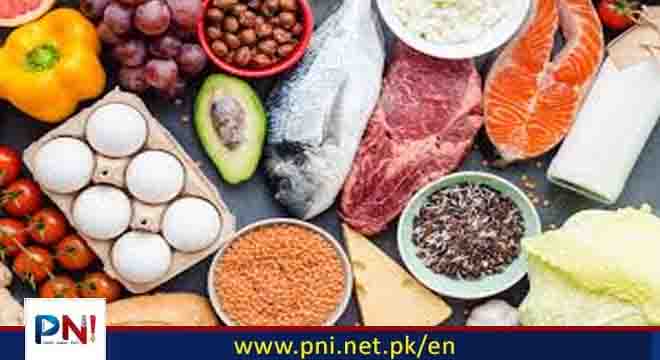LAHORE, Dec 01 :Among global healthcare concerns, osteoporosis emerges as one of the most widespread, yet often overlooked, conditions, especially in aging populations. This silent ailment, marked by the progressive weakening of bones, carries significant implications, including an increased likelihood of fractures, restricted mobility and a decline in overall quality of life.
Osteoporosis is a condition that develops over time, often without symptoms until a fracture occurs. It primarily affects bones in the hip, spine and wrist with fractures in these areas posing severe health risks, especially among the elderly. The World Health Organisation (WHO) estimates that over 200 million people worldwide suffer from osteoporosis, making it a critical public health concern. In Pakistan, approximately 9.9 million individuals currently live with this condition, 7.2 million of whom are women. Projections suggest this figure will rise to 11.3 million by 2025 and to a staggering 12.9 million by 2050.
Highlighting the role of diet and lifestyle, Asim Javed, Director General of Punjab Food Authority (PFA), said: “Preventing osteoporosis begins with our diet. Nutritional awareness and proactive choices are pivotal in reducing its impact and enhancing the quality of life.”
Osteoporosis is not merely an individual health issue, it is a global crisis affecting millions. Worldwide, one in three women over the age of 50 and one in five men will experience osteoporotic fractures during their lifetime. This condition places significant strain on healthcare systems due to the long-term care required for fracture recovery and the associated loss of mobility and independence.
In Pakistan, osteoporosis epidemic is exacerbated by dietary deficiencies and lifestyle factors. According to studies, a large proportion of Pakistani women suffer from suboptimal bone mineral density (BMD), a condition closely linked to insufficient calcium and vitamin D intake. The high prevalence of nutrient deficiencies like vitamin D (62%), calcium (45%) and magnesium further worsens problem.
Economic implications are equally dire. Treating osteoporotic fractures requires substantial financial resources, which many in Pakistan cannot afford. Consequently, prevention strategies such as nutritional education and dietary supplementation become not only a health imperative but also an economic necessity.
“Calcium deficiency is a silent epidemic,” warns Asim Javed. “Through education and fortified foods, we aim to address this gap and protect future generations from the risks of osteoporosis.
The intricate relationship between diet and osteoporosis cannot be overstated. Adequate calcium and vitamin D intake are fundamental to bone health, particularly in aging populations. Calcium serves as the building block of bones, while vitamin D facilitates calcium absorption and bone metabolism.
Common dietary sources of calcium include:
– Dairy products: Milk, cheese, yogurt
– Leafy greens: Spinach, kale
– Nuts and seeds: Almonds, sesame seeds
– Fortified foods: Plant-based milks, cereals
Vitamin D is found in:
– Fatty fish: Salmon, mackerel
– Fortified dairy and plant-based milks
– Eggs
– Sunlight exposure
Beyond calcium and vitamin D, other nutrients like magnesium, protein and vitamin K also contribute to bone health. Magnesium helps with calcium metabolism, while vitamin K plays a role in bone mineralization. Research shows that diets rich in these nutrients can significantly reduce the risk of fractures and maintain bone density.
Osteoporosis in Pakistan: A closer look
A 2018 study on bone health among Pakistani women revealed alarming deficiencies in key nutrients essential for maintaining bone density. These deficiencies, coupled with a sedentary lifestyle and high prevalence of smoking, exacerbate osteoporosis risks. Women, particularly those in rural areas, are disproportionately affected due to limited access to nutrient-rich foods and healthcare.
The projected rise in osteoporosis cases to nearly 13 million by 2050 in Pakistan underscores the urgent need for preventive measures. Dietary calcium deficiency, a significant contributor to this epidemic, is often attributed to the unaffordability of calcium-rich foods and lack of public awareness. This deficiency not only weakens bones but also affects cardiovascular health, pregnancy outcomes, and muscle function.
“Addressing calcium deficiency requires creative solutions,” says Asim Javed. “Our initiatives focus on introducing calcium-fortified foods and empowering individuals to make healthier choices.”
Role of Punjab Food Authority
Recognising the severity of osteoporosis, the Punjab Food Authority has undertaken multiple initiatives to raise awareness about its prevention through diet and nutrition. PFA’s Nutrition Section organises community seminars, nutrition camps and social media campaigns to educate the public about incorporating nutrient-rich foods into their diets.
By promoting calcium-fortified foods and regulating food quality, PFA aims to combat nutritional deficiencies that contribute to osteoporosis. These efforts align with Pakistan’s broader National Action Plan on Non-Communicable Diseases, which seeks to reduce the prevalence of chronic illnesses, including osteoporosis, through education and preventive measures. “Nutrition is the foundation of a healthy life,” remarks Asim Javed. “Our mission is to ensure that every individual, regardless of socioeconomic status, has access to the knowledge and resources needed to make informed dietary choices.”
Osteoporosis prevention demands a comprehensive approach involving healthcare providers, policymakers and communities. Public health campaigns promoting calcium and vitamin D intake, school programmes teaching children about healthy eating and workplace wellness initiatives are all critical components of a national strategy.
The Punjab Food Authority’s focus on nutritional literacy is a step in the right direction. By leveraging social media to reach younger audiences and organising community workshops, the PFA ensures that its message reaches all segments of society.
As Pakistan grapples with the growing burden of osteoporosis, need for preventive measures is more urgent than ever. Dietary choices, supplemented by public health initiatives, hold the key to reducing the prevalence of this disease and improving the overall quality of life for millions.
“Every meal is an opportunity to strengthen our bones and secure our health,” concludes Asim Javed. “Let’s build a future where osteoporosis is no longer a silent threat.”
Through continued dedication to nutritional education and public health campaigns, Pakistan can create a healthier, more resilient population, safeguarding future generations against the debilitating effects of osteoporosis.
Follow the PNI Facebook page for the latest news and updates.









